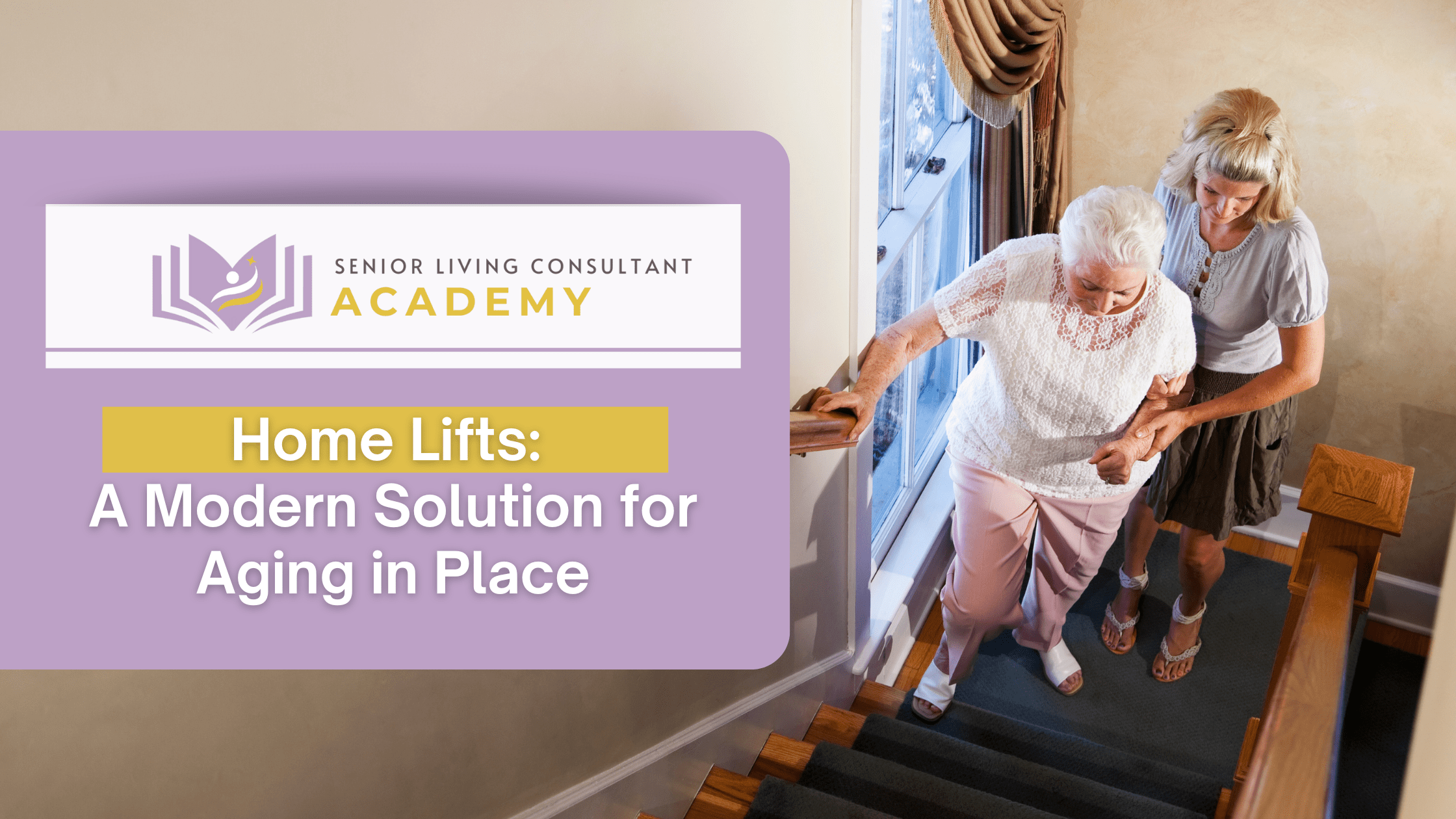
Navigating Senior Living Options: A Comprehensive Guide for Families
The journey of finding the right senior living arrangement for a loved one can be both emotional and challenging. Families often find themselves navigating a

Almost everyone with a safe place to call home wants to remain independent. Maintaining that independence and safety in your own home can require a few changes as we age. For many seniors, the prospect of climbing stairs holds less appeal over time. While stairlifts have been a popular solution, a newer, more versatile option has emerged: home lifts.
A home lift, or residential elevator, is a compact elevator designed for personal use within a home. Unlike stairlifts, which are restricted to stairways, home lifts can serve multiple floors, accommodating a wider range of mobility needs. And with a smaller footprint than stairlifts, more of your living space remains your own. While they may not be for everyone, this newer residential technology does offer several advantages.
Choosing a home lift is an investment in your comfort and independence. By prioritizing accessibility and safety, you’re ensuring your home remains an enjoyable place to live for years to come.
But how do you choose the right home lift? Several factors influence the ideal setup for your needs. Always discuss these considerations with a home lift provider, as they should have engineers on staff who can work up accurate numbers for your specific situation. Here are some of the things you may want to include in your discussions:
Naturally, any home modification can be expensive. Some home installations might be at least partly covered by your health insurance, especially if you need a lift for a chronic condition and not just temporarily, such as while recovering from a surgery. For shorter-term requirements, you might even be able to rent a lift, depending on the architecture of your home, though this is more common with stair lifts than with the more versatile elevators.
Many states have programs that offer grants for home modifications like these. Some states may offer other types of financial assistance to help seniors remain safe and healthy in their own homes for longer. Even where this might not pay for the lift itself, they could offset other expenses, giving you more flexibility to consider the right, permanent installation for you.
There are also a few nonprofit organizations who could provide funding, help in finding funding, or even offer some of the equipment itself, if you ask. Expect every state and nonprofit to have different guidelines and qualifications, but know that you may have resources closer than you think at first glance.
If the decision of whether or not to install a home lift feels overwhelming, consider reaching out to a senior living expert. These professionals can help you take a balanced look at your specific needs, recommend suitable options, and ensure that you have the information and the perspective you need to make the right decision at each step of your journey.
Even more importantly, a good Senior Living Consultant wants you to have what’s best for YOU at all times. If you decide to move, they can help you explore your options and find the best fit. If you decide to stay in your home, they can help you find the care you need to come to you. That may include helping you evaluate how to upgrade your living space for added comfort and safety.
Wherever you choose to spend your golden years, your security and your well-being should always be at the top of the list. If you know you need to make a change, but you’re not sure where to start, call a Senior Living Consultant today.

The journey of finding the right senior living arrangement for a loved one can be both emotional and challenging. Families often find themselves navigating a

Beyond the transactional aspects of consultations, empathy plays a pivotal role in fostering genuine connections and tailoring recommendations with a compassionate touch. In this article,


This website uses cookies to ensure you get the best experience on our website. If you continue to use the site, then we will assume you are happy with it.